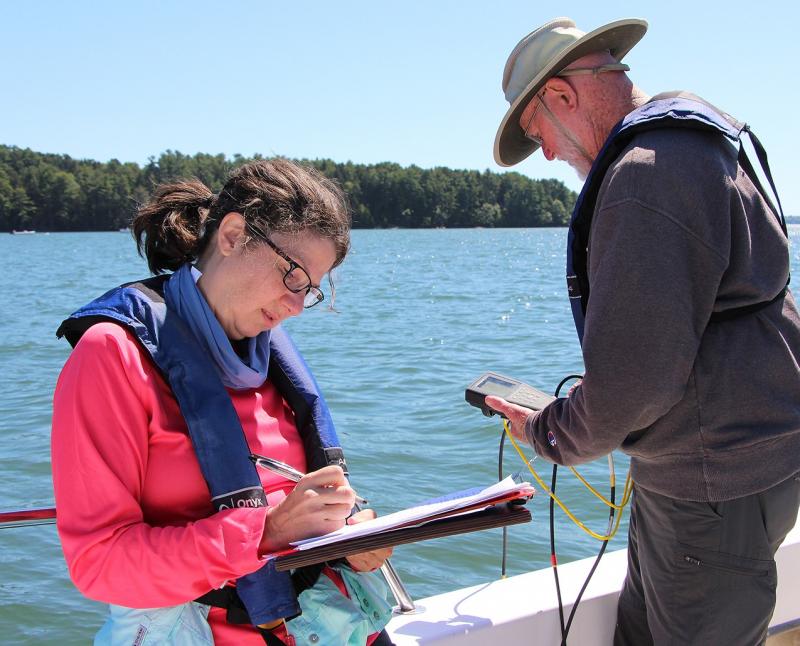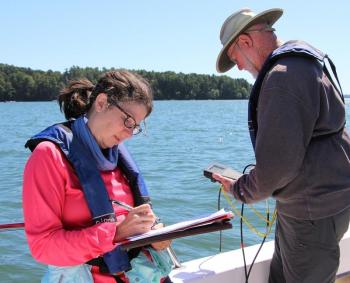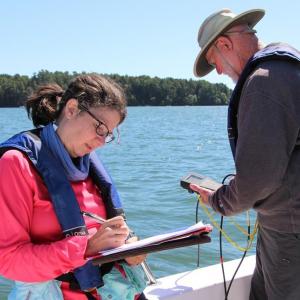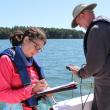New date for program on water quality in the Damariscotta River Estuary
Originally scheduled for Nov. 12, this online program has been moved to Dec. 10.
The Damariscotta River Estuary is an important driver of the local economy. It represents a livelihood for fisherman, oyster growers, and clammers, offers varied opportunities for recreation, and supports diverse and abundant wildlife.
In the interest of protecting the health of the estuary, citizen science volunteers for Coastal Rivers Conservation Trust monitor water quality at seven locations on the river on a regular, on-going basis.
On Thursday, Dec. 10, from 4 to 5:30 p.m., Sarah Gladu, director of Education and Citizen Science at Coastal Rivers, and Kathleen Thornton, research specialist at the University of Maine’s Darling Marine Center (DMC), will share what they have learned from these water quality data in a live online program.
This event is free of charge, thanks to Coastal Rivers member support. Registration is required and may be done at coastalrivers.org/events. Registrants will receive an email with a link and instructions for joining the program.
Gladu and Thornton will discuss estuarine conditions and share observations made from their analysis of Coastal River’s water quality data. Tying in data from the Maine Coastal Observing Alliance, a regional water quality monitoring group, they will take a look at our estuary in a broader regional perspective.
In particular, participants will learn about coastal acidification and the impact of nutrients such as nitrogen, which can drive changes in pH. Coastal acidification occurs when pH declines, and this can have a negative impact on oysters, lobsters and many other creatures that live in the estuary.
Gladu and Thornton will also discuss meaningful actions property owners and municipalities can take to protect local water quality. Participants will have an opportunity to ask questions, share observations, and join the discussion.
Maine Coastal Observing Alliance, chaired by Gladu, is a coalition of non-profits focusing on gathering water quality data along the coast from Harraseeket to Rockport Harbor.
University of Maine’s Darling Marine Center, located on the Damariscotta River Estuary in Walpole, is an active center of marine research, education, and outreach. In addition to supporting university research and education, the DMC also actively engages with fishermen, aquaculture entrepreneurs, marine industry professionals, and community members through collaborative research, workforce development, and business incubation programs.
Event Date
Address
United States



























